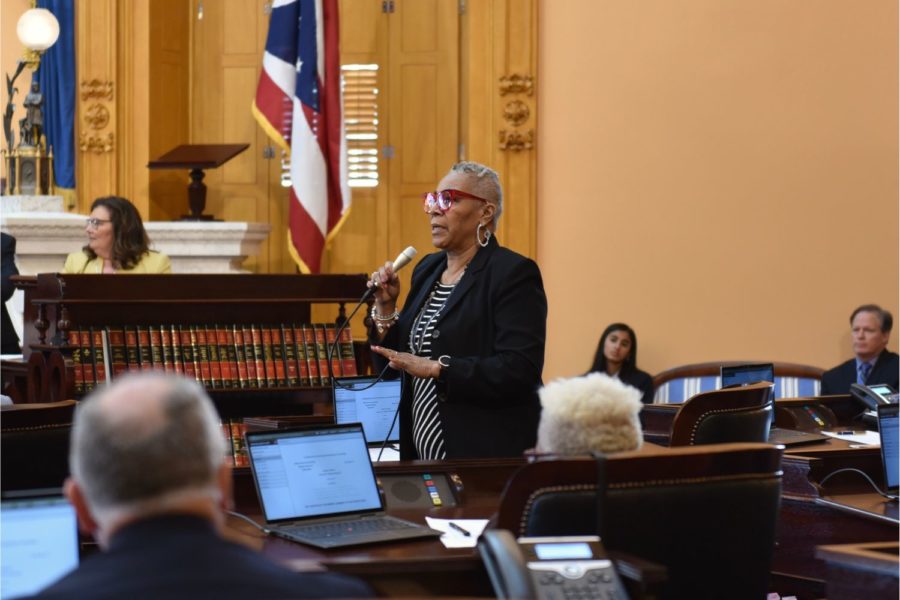On March 15, Senate Bill 83, a bill that would withhold state funding for private universities if they require diversity, equity and inclusion training and do not show proof of encouraging “intellectual diversity” and “free speech” on campus, was introduced in the Ohio Senate.
According to the language of the bill, “‘intellectual diversity’ refers to multiple, divergent and opposing perspectives on an extensive range of public policy issues widely discussed and debated in society at large, especially those perspectives that reflect the range of American opinion, but which are poorly represented on campus.”
Matthew Ward, professor of political science, said that the bill’s vague language might encourage self-censorship.
“[The bills] can mean anything,” Ward said. “And that’s the point, is to not necessarily enforce that law, but to make people wary because it is so broad so they self-censor. I think that’s the real goal of these because I don’t think they’d stand legal muster.”
Senate Bill 83’s primary sponsor, Ohio State Senator Jerry Cirino (R-Kirtland), said that the bill was inspired in response to “wokeness” on college campuses.
“They’ve gone off on a tangent away from their mission of educating students, teaching them different sides of an issue, and not what to think but how to think,” Cirino said. “These campuses have gotten very woke, and they’ve jumped on the bandwagon and are now moving into the area of social engineering and indoctrination.”
Ward said that while there is evidence to back up the belief that university faculty are generally more ideologically liberal, they are falsely equating the makeup of the university with the intentions of university professors.
“These sort of people have been out of college for a very long time,” Ward said. “So I think they think it’s sort of like a communist den of wolves. It’s very Cold War mentality.”
Cirino, who represents the 18th district and serves on the Workforce and Higher Education Committee, said that the intent of the bill is to encourage students to learn and think for themselves. However, Sen. Catherine Ingram, a Democrat from Cincinnati and Cirino’s colleague in the Workforce and Higher Education Committee, said that students already know how to think for themselves.
“It’s a response to a problem that doesn’t exist,” Ingram said. “I’m not really sure what the intent is other than a power grab over the outcome of post-secondary education.”
The former leader of BW’s College Republicans, Sarah Giddings, said that there is a “liberal bias” within the University’s faculty that impacts the classroom experience.
“I had already had some situations in class where I had teachers start to treat me differently once they find out I’m Republican,” Giddings said.
The current president of College Democrats, Madelyn Pyles, said that while she understands the experience of the Republicans who feel that their voices are being shunned, she said that this perception does not seem to match reality as Ohio becomes increasingly conservative in the polls.
“I don’t really know why there’s this perception that you know, the conservatives have it rough,” Pyles said. “I don’t want to sound mean, but I think white Christian conservatives have pretty much held the majority. They’re empowered.”
Last year, a Federal judge blocked a bill in Florida that was aimed at free speech on college campuses. Ward said that while he expects Senate Bill 83 to pass in Ohio, he could see it being struck down.
“I think it’ll pass because the legislature is overwhelmingly Republican. It’s being sponsored by Republicans and the Governor is a Republican,” Ward said. “I think that the courts won’t though because the same law was passed in Florida, I think a less restrictive one actually, and the judge struck it down and said it was basically Orwellian.”
This story was originally published on The Exponent on April 7, 2023.








































